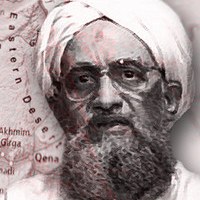![]()
RubinReports | By Barry Rubin

Egyptian President Mohamed Mursi’s decree granting himself extended powers raises very serious human rights concerns. (Image: samaa tv)
The French press agency headline says it all: “Egypt’s [President] Morsi assumes sweeping powers, branded new pharaoh.” Mursi has issued a decree giving himself virtually dictatorial powers and contradicting the assumption that he — and his Muslim Brotherhood organization — intend to rule democratically. Opposition forces said this constituted a coup.
Mursi’s spokesman explained the decree in these terms: the president can issue any decree he wishes to protect the revolution. “The constitutional declarations, decisions and laws issued by the president are final and not subject to appeal.”
It seems apparent that this is another step in the process toward the fundamental transformation of Egypt into an Islamist, Sharia-ruled state. If one views the 2011 revolution as a democratic one, then Mursi is destroying it. But of course he and the Muslim Brotherhood and the Salafists see it as an Islamist revolution, parallel to the 1979 Iranian revolution — though in Egyptian terms, of course. Lest there be any illusions about what this means, note that Mursi is one man whose legitimacy is not established in practice — despite having won an election — and who cannot depend on the country’s institutions to obey him. The power behind Mursi is not that he is president but that he has the support of the country’s strongest group, the Muslim Brotherhood, and can generally count on the Salafists as well.
The timing of this takeover is ironic since it coincides with an all-time high for the Obama administration’s regard for Egypt, following that regime’s brokering of an Israel-Hamas ceasefire, including a continuous insistence from the U.S. government and mass media that the Brotherhood was now moderate and pro-democratic. In a normal universe, a U.S. president would be furious at Egypt for being made to look foolish after lavishing so much praise on Egypt and its insistence that the Brotherhood was moderate and democratic. Of course, that will not happen with this administration.
It is true that Mursi acted “pragmatically” on the ceasefire issue. But what does that mean? He took into account his own regime interests and didn’t just howl “Alahu Akhbar!” repeatedly. Westerners seem to think that for someone to be a radical Islamist they have to be a wild man. If Osama bin Laden wore a suit and tie, he’d still be alive today.
But of course Mursi wants to stay in power and strengthen his regime. He’s not going to throw away $10 billion in aid (U.S., EU, IMF) for some wild adventure in the Gaza Strip that Hamas began without asking him. He doesn’t yet control the country or the army. There’s no constitution and no functioning parliament. If the Muslim Brotherhood has proven anything, it is that it has patience.
According to the New York Times:
Mr. Obama told aides he was impressed with the Egyptian leader’s pragmatic confidence. He sensed an engineer’s precision with surprisingly little ideology. Most important, Mr. Obama told aides that he considered Mr. Morsi a straight shooter who delivered on what he promised and did not promise what he could not deliver.
“The thing that appealed to the president was how practical the conversations were — here’s the state of play, here are the issues we’re concerned about,” said a senior administration official who spoke on the condition of anonymity to discuss private conversations. “This was somebody focused on solving problems.”
But the main problems Mursi is focused on is how to keep the Muslim Brotherhood in power, how to get lots of money from the West, and how to make Egypt into a radical Islamist state. Enforcing quiet in the Gaza Strip right now is part of that effort.
Being the main sponsor of Hamas, a terrorist group, used to be called “state sponsorship of terrorism,” now it is to be admired as being, in the New York Times formulation, Hamas’s “most important international ally.” Another interesting parallel is that Hamas, like the fellow Brotherhood branch in Egypt, won an election and then seized power completely. Things in Egypt have not yet gone that far, but Mursi has taken a big step in that direction.
At home, it has taken only a few weeks for Mursi to return to dictatorship. The decree comes as secular-minded groups demonstrate in the Tahrir Square area while the Islamists call for suppressing them.
Mursi’s offensive seeks to give him the power to purge existing institutions and put supporters in control.
Perhaps the highest priority is to take over the court system by appointing Islamist judges. During the late Mubarak regime, judges were among the most courageous of dissidents, issuing decisions the government doesn’t like. After the revolution, judges gave rulings against the Brotherhood’s goals, for example, saying that the election of parliament — which is three-quarters Islamist — was illegal. Mursi wants to reverse this ruling by decree rather than face new elections where Islamist vote totals will probably plummet.
The other key institutions are the armed forces, where top generals have already resigned, and the religious establishment. While the chiefs of Egypt’s religious system, including the powerful mosque-university al-Azhar, are hardly liberal, they are also not systematic Islamists or Brotherhood supporters. Once such people are replaced with loyalists, the Brotherhood will have the power to define Islam itself.
Given the international authority of al-Azhar, which trains clerics for many different countries, Sunni Islam from Morocco to Indonesia would be closer to becoming thoroughly in line with revolutionary Islamist, anti-Western, antisemitic thinking. That is not to say it is open, liberal, and tolerant now. But the situation would be far worse and destabilizing. For example, mainstream clerics would issue a stream of rulings justifying terrorism and condemning anyone who cooperated with the West.
The Egyptian regime’s cooperation on a Gaza ceasefire, then, was in large part intended to defuse any reaction against its movement toward dictatorship at home. It is doubtful, for example, that the Obama administration will condemn the new decree giving Mursi total power in the country. And Egypt will get almost $10 billion in aid from the United States, European Union, and International Monetary Fund, even as it becomes a repressive, Islamist state.
Barry Rubin is director of the Global Research in International Affairs (GLORIA) Center and editor of the Middle East Review of International Affairs (MERIA) Journal. His latest book, “Israel: An Introduction“, has just been published by Yale University Press. Other recent books include “The Israel-Arab Reader” (seventh edition), “The Long War for Freedom: The Arab Struggle for Democracy in the Middle East” (Wiley), and “The Truth About Syria” (Palgrave-Macmillan). The website of the GLORIA Center and of his blog, Rubin Reports. His original articles are published at PJMedia.



 RSS
RSS










Latest Comments
Hello Mike, Thank you for your positive feedback to the article. I felt there wasn’t too much critical analysis of ...
Thanks for this considered and well constructed article. A follow up article on the manner in which the editorial contro...
THE CLUELESSNESS OF CLAIMING THAT OBAMA'S MIDDLE EAST POLICIES WERE A FAILURE CANNOT BE FURTHER FROM THE TRUTH, WHAT THE...
As long as Obama is the president of the usa do not trust the us government......
Thank you for an good read....